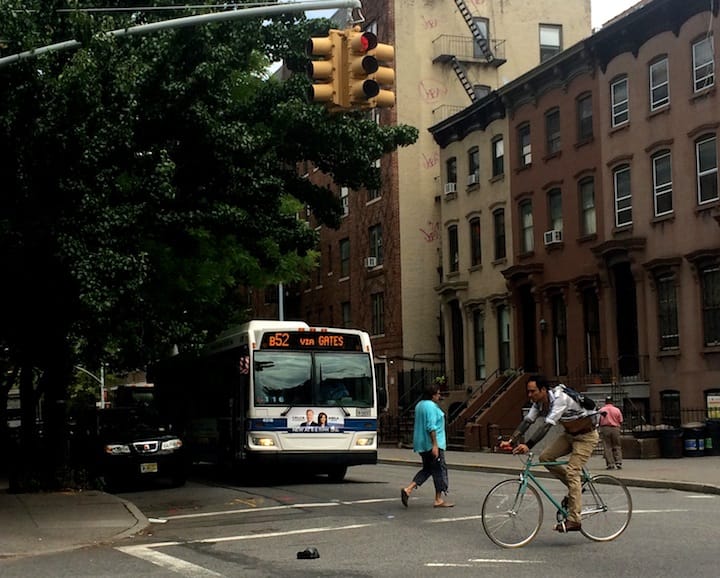City Council Bill Proposes Allowing Cyclists To Cross With The Pedestrian Light


A new City Council bill has been proposed that would allow a bicyclist to cross a street with the pedestrian light — instead of with the vehicle traffic lights, which they currently must do — and local street safety advocates are pushing for the bill to be passed and the changes to become reality.
The change would mean that cyclists would benefit from Leading Pedestrian Intervals (LPI) — a 3-7 second head start for pedestrians when entering an intersection with a corresponding green signal in the same direction of travel. Currently, only some intersections have LPIs synchronized in traffic signals.
According to the bill’s sponsors, Councilmembers Carlos Menchaca of Sunset Park, Brad Lander of Park Slope, and Antonio Reynoso of Williamsburg, “LPIs have been shown to reduce pedestrian-vehicle collisions as much as 60% at treated intersections.”
“Using the LPI while on my bike saves my life every day,” said Hilda Cohen, a Fort Greene mom and co-founder of street safety advocacy group Make Brooklyn Safer. “I bike with my son to school each day that we can and we follow the laws and stop at reds. It is incredibly intimidating to have a driver gunning the engine while we wait for the light to change, vulnerably sitting right in front of them. . . Those precious moments the LPI allows gives us time and distance to get ahead of the vehicles, to make that transition safer for everyone.”
Community Board 6 board member Joanna Oltman Smith agreed, noting that she “often wish[es she] could proceed through dangerous intersections before drivers have the chance to ignore my right of way. By reducing mid-intersection conflicts between people on bikes and turning vehicles, this bill, if enacted, is certain to reduce injuries and fatalities on our streets. It is an elegant, no-cost way to further NYC’s Vision Zero goals.”
If enacted, the bill would go into effect within 120 days of its passage.
According to Menchaca, “this bill is part of a larger conversation we are having as a city through the Vision Zero Plan.”




